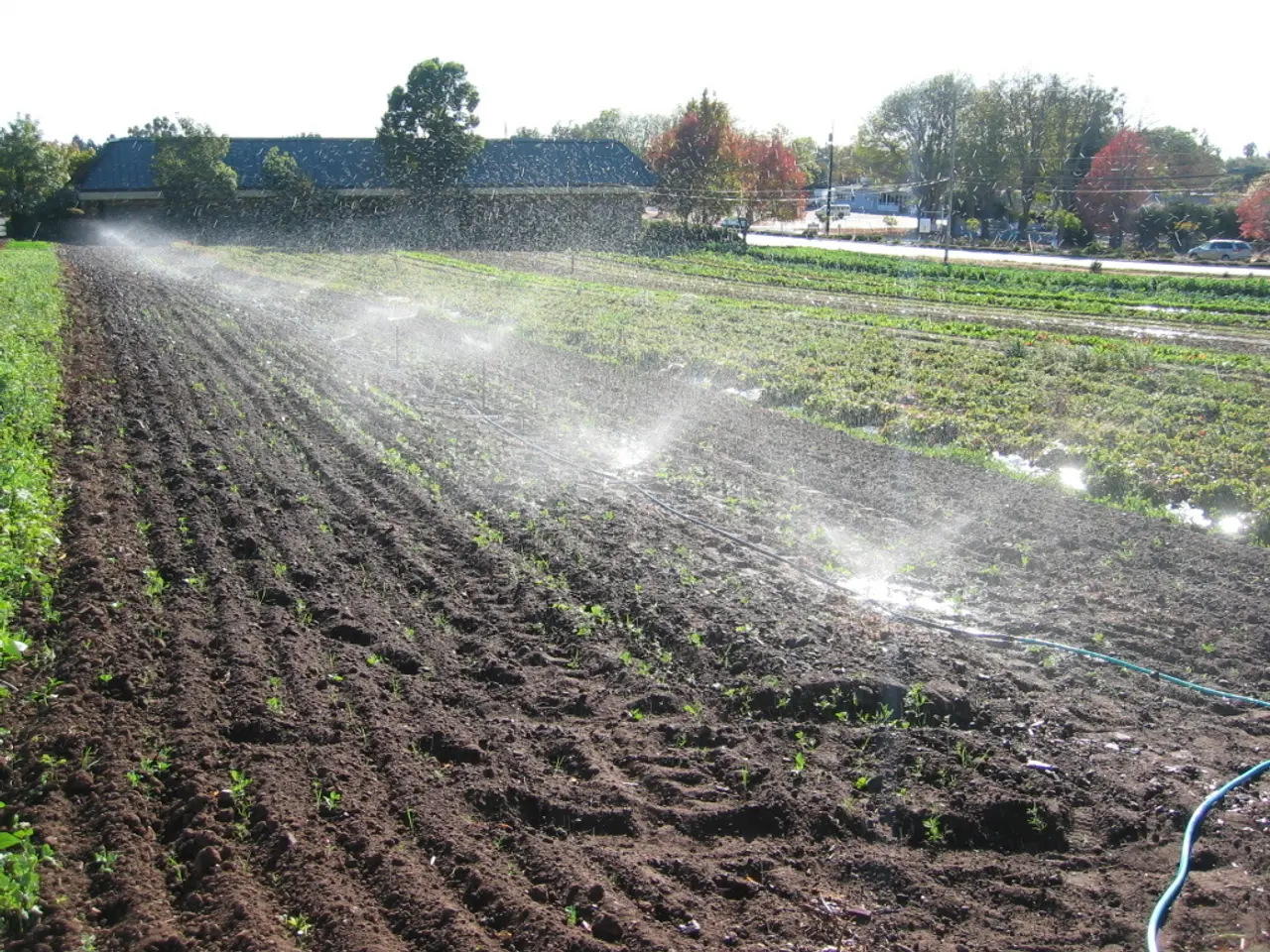Avoiding irrigation system failures: strategies for reliable operation
Maintaining Your Irrigation System for Optimal Performance
To ensure your irrigation system performs effectively and lasts longer, follow these best practices for regular maintenance.
Inspection Regularly inspect your irrigation system for leaks, damage, and wear, checking pipes, valves, sprinkler heads, and electrical connections. This helps identify issues promptly, preventing costly repairs and water waste.
Cleaning Periodically clean components such as sprinkler heads, valves, and filters to remove dirt, sediment, mineral buildup, and debris. This prevents clogging, maintains water flow, and extends the lifespan of your system.
Adjustment Adjust sprinkler heads and spray patterns monthly to ensure even coverage and avoid watering non-landscape areas like sidewalks and driveways. This avoids water waste and stress on plants due to uneven watering.
Monitoring and Regulation Monitor and regulate water pressure to keep it within an ideal range (typically 30-50 PSI). High pressure can damage system parts, while low pressure results in poor coverage.
Testing and Updating Test and update watering schedules seasonally based on local weather, plant needs, and evaporation rates. Water in early morning or late evening to reduce water loss.
Programming Check timer settings and system programming regularly, accommodating seasonal changes to avoid over- or under-watering.
Scheduling Establish and adhere to a maintenance schedule that includes all these steps for consistent system performance and early detection of issues.
Quality Matters Choosing quality materials for your irrigation system can help it withstand environmental stresses better, increasing its lifespan.
Additional Tips - Regular maintenance helps identify leaks, clogs, and non-functioning solenoid valves promptly. - Cleaning filters and nozzles at every change of season, or more often if the water is particularly hard, is recommended for maintaining irrigation systems. - Each zone of the irrigation system should maintain stable pressure and there should be no unusual wet spots or suspicious puddles. - Zones of the garden that remain dry or flood unusually indicate a problem. - Damage to pipes and fittings can occur during winter or in rural areas due to frost or animals. - A complete inspection is recommended at the start of the season. - Regular maintenance is essential to keep the irrigation system in top condition year-round. - Situations may arise where a more thorough check or intervention is needed. - Regular checks prevent stress and damage to irrigation system components, increasing the lifespan of the entire system.
By following these practices, you can conserve water, protect your landscape, reduce repair costs, and extend the life of your irrigation system.
In the realm of home-improvement, regular upkeep of your irrigation system is of paramount importance, not only for optimal performance but also for conserving water and saving costs. This may involve tasks such as other maintenance routines often associated with motor vehicles, like inspection, cleaning, and adjustment, or even tasks related to home-and-garden upkeep, like monitoring and regulation.




